Top 250 Movies Like 孙中山
A list of the best movies similar to 孙中山. If you liked 孙中山 then you may also like: 55 Days at Peking, Yellow Earth, Young Detective Dee: Rise of the Sea Dragon, Youth, The Warlords and many more great movies featured on this list.
Yellow Earth
A Communist soldier is sent to the countryside to collect folk songs for the Communist Revolution. There he stays with a peasant family and learns that the happy songs he was sent to collect do not exist; the songs he finds are about hardship and suffering. He returns to the army, but promises to come back for the young girl, Cuiqiao, who has been spellbound by his talk of the freedom women have under Communist rule and who wants to join the Communist Army.
Young Detective Dee: Rise of the Sea Dragon
The action-packed and captivating tale of Dee Renjie's beginnings in the Imperial police force. His very first case, investigating reports of a sea monster terrorizing the town, reveals a sinister conspiracy of treachery and betrayal, leading to the highest reaches of the Imperial family.
The Warlords
A heroic tale of three blood brothers and their struggle in the midst of war and political upheaval. It is based on "The Assassination of Ma," a Qing Dynasty (1644-1911) story about the killing of general Ma Xinyi.
Winter on Fire: Ukraine's Fight for Freedom
A documentary on the unrest in Ukraine during 2013 and 2014, as student demonstrations supporting European integration grew into a violent revolution calling for the resignation of President Viktor F. Yanukovich.
Oil for the Lamps of China
An American oil company representative almost sacrifices his marriage for his career.
The Opium War
The story of the Opium War between China, in the waning days of the Qing Dynasty, and the British Empire, in the 1830s, and the subsequent takeover of Hong Kong by Britain; through the eyes of the key figures, fiercely nationalistic Lin Zexu, and opportunistic British naval diplomat Charles Elliot.
Our Man in Tehran
Chronicles the true story behind Argo’s Hollywood embellishments by looking at the efforts of the venerable Ken Taylor, Canada’s former ambassador to Iran, who personally sheltered six American diplomats in the operation that became known as "the Canadian Caper."
Red Amnesia
A retired widow has her daily routine derailed when she starts receiving mysterious, anonymous phone calls.
Red Cliff
In 208 A.D., in the final days of the Han Dynasty, shrewd Prime Minster Cao convinced the fickle Emperor Han the only way to unite all of China was to declare war on the kingdoms of Xu in the west and East Wu in the south. Thus began a military campaign of unprecedented scale. Left with no other hope for survival, the kingdoms of Xu and East Wu formed an unlikely alliance.
Rhapsody of Spring
Tracing the fascinating, real-life saga of one of China's most revered composers, master storyteller Teng Wenji sweeps us into China's intellectual and artistic coming of age during the Cultural Revolution (1966-76). As a young composer, Zhao Liming (Shao Bing) struggles with a constellation of opposing forces: personal ambitions vs. communal obligation, romantic love vs. loyal friendship, modern music vs. traditional.
Road to Dawn
Based on the story of Dr Sun Yat Sen’s revolutionary efforts and his love affairs while he was in Penang in 1910.
Round Eyes In The Middle Kingdom
Filmmaker Ronald Levaco, journeys back to China, the nation of his boyhood days, to discover what became of an old friend of his family, Israel Epstein.
The Knot
They fell in love; Chen Qiushui was 20. Wang Biyun was 18. When Qiushui fled Taiwan after the 228 Massacre, Biyun gave him a gold engagement ring and they promised to meet again. Qiushui served as an army doctor during the Korean War, where he met Wang Jindi, a nurse from Shanghai who fell in love with him instantly. Years had gone by, Qiushui married Jindi and settled in Tibet. While in Taiwan, Biyun buried Qiushui's mother and continued to pray for his return. Flashback to modern time, Biyun is living in New York. Her niece played by Isabella Leong, a writer, has travelled to Tibet to find out what happened to Qiushui. Through the pictures she sends back via internet, Biyun finally gets to see the familiar face once again.
Back to 1942
In 1942, Henan Province was devastated by the most tragic famine in modern Chinese history, resulting in the deaths of at least three million men, women and children. Although the primary cause of the famine was a severe drought, it was exacerbated by locusts, windstorms, earthquakes, epidemic disease and the corruption of the ruling Kuomintang government.
The Blue Kite
The lives of a Beijing family throughout the 1950s and 1960s, as they experience the impact of the Hundred Flowers Campaign, the Great Leap Forward, and the Cultural Revolution.
Brotherhood of Blades
In the late Ming Dynasty, three sworn brothers who serve as the imperial secret police are dispatched to hunt down Wei Zhongxian, a eunuch politician who had been forced to resign from his influential post and exiled from Beijing. The brothers return successfully from their quest, only to find that their task was but the beginning of a strange conspiracy.
City of Life and Death
In 1937, during the height of the Second Sino-Japanese War, the Imperial Japanese Army has just captured Nanjing, then-capital of the Republic of China. What followed was known as the Nanking Massacre, or the Rape of Nanking, a six week period wherein tens of thousands of Chinese soldiers and civilians were killed.
Confucius
In 500 B.C., during Chinas famed 'Spring and Autumn Period', Kong Ze (Confucius), a commoner reverred for his outstanding wisdom, is made Minister of Law in the ancient Kingdom of Lu. Under his inspired leadership, Lu ascends to new heights but becomes a target of conquest for the warlike nation of Qi. Threatened with annihilation by their powerful neighbour, a desperate people turn to their greatest teacher to lead their most powerful army. When Confucius delivers a stunning victory against all odds, a jealous aristocracy sets out to destroy him, but they should never under-estimate a remarkable man whose wisdom is more powerful than the sword.
The Crossing
At the end of the World War II and the middle of the Chinese Revolution, three couples from different backgrounds with different nationalities flee from China to the island of Taiwan.
Farewell My Concubine
Abandoned by his prostitute mother in 1920, Douzi was raised by a theater troupe. There he meets Shitou and over the following years the two develop an act entitled "Farewell My Concubine" that brings them fame and fortune. When Shitou marries Juxian, Douzi becomes jealous, the beginnings of the acting duo's explosive breakup and tragic fall take root.
The Flowers of War
A Westerner finds refuge with a group of women in a church during Japan's rape of Nanking in 1937. Posing as a priest, he attempts to lead the women to safety.
In the Heat of the Sun
The film is set in Beijing during the Cultural Revolution. It is told from the perspective of Ma Xiaojun nicknamed Monkey, a teenage boy. Monkey and his friends are free to roam the streets of Beijing day and night because the Cultural Revolution has caused their parents and most adults to be either busy or away. The story revolves around Monkey's dalliances with his roguish male friends and his subsequent angst-filled crush with Mi Lan.
Mulan
When the Emperor of China issues a decree that one man per family must serve in the Imperial Chinese Army to defend the country from Huns, Hua Mulan, the eldest daughter of an honored warrior, steps in to take the place of her ailing father. She is spirited, determined and quick on her feet. Disguised as a man by the name of Hua Jun, she is tested every step of the way and must harness her innermost strength and embrace her true potential.
To Live
Fugui and Jiazhen endure tumultuous events in China as their personal fortunes move from wealthy landownership to peasantry. Addicted to gambling, Fugui loses everything. In the years that follow he is pressed into both the nationalist and communist armies, while Jiazhen is forced into menial work.
Devils on the Doorstep
During the Japanese occupation of China, two prisoners are dumped in a peasant's home in a small town. The owner is bullied into keeping the prisoners until the next New Year, at which time they will be collected. The village leaders convene to interrogate the prisoners. The townspeople then struggle to accommodate the prisoners. One is a bellicose Japanese nationalist, the other a nervous translator. Will the townspeople manage to keep the prisoners until the New Year?
Detective Dee and the Mystery of the Phantom Flame
When the future empress Wu Zetian's two courtiers die in a mysterious fire, she gets Di Renjie, a former detective and rebel, released from prison to solve the mystery of the fire.
Don't Cry, Nanking
In December 1937, during the Second Japanese-Sino War, a Chinese doctor, his Japanese pregnant wife, their teenage daughter and their young son travel from Shanghai to Nanjing seeking shelter in the Capital during the Japanese invasion. The family faces the Rape of Nanking by the Imperial Japanese Army, with rapes, mass murder of prisoners of war and civilians including women, children and elders, and disrespect of international conventions.
The East Is Red
Pre-Cultural Revolution propaganda at its most lavish, this model opera depicts the history and evolution of the Communist Party of China under Mao Zedong from its founding in July 1921 to the establishment of "New China" in 1949. Detailed in the musical are several key events in CPC history such as the Northern Expedition, the KMT-led Shanghai massacre of 1927, the Nanchang Uprising and formation of the People's Liberation Army, the Long March and the founding of the PRC on October 1, 1949.
The Emperor's Shadow
Epic drama about China's first emperor (221 BC) who struggles to make his childhood best friend, now China's greatest composer, succumb to his will and compose a grand anthem to his exploits.
Flying Swords of Dragon Gate
Flying Swords of Dragon Gate picks up three years after the infamous Dragon Inn was burnt down in the desert when its innkeeper Jade vanished. A new gang of marauders had taken over - innkeepers by day and treasure hunters by night. The inn is the rumoured location of a lost city buried under the desert, and its hidden treasure would only be revealed by a gigantic storm every 60 years. The gang used the inn as a front to locate the lost treasure.
God of War
During the 16th century, pirates rule the Chinese coastline, pillaging the small villages and terrorizing the citizens. When maverick leader Commander Yu enlists the help of a sharp young general, they devise a plan to defeat the pirates. A violent clash of wit and weapons will decide who will rule the land.
The Herdsman
In 1980, Xu Jingshan, a wealthy Chinese-American businessman returns to China to find his son, Xu Lingjun, whom he had abandoned over 30 years earlier. Labeled a rightist because of his capitalist father, Lingjun has been forced to live as a humble herdsman on the grasslands. His bitter life has been transformed by a happy marriage to the wise and beautiful Xiuzhi, and more recently by his rehabilitation by the Party. When he goes to Beijing for their reunion, he discovers his father wants him to work for his chemical company in San Francisco. Lingjun tells the story of his life to his father, as he ponders his future.
I Wish I Knew
Focuses on the people, their stories and architecture spanning from the mid-1800s, when Shanghai was opened as a trading port, to the present day.
Lady of the Dynasty
The tragic story of a Tang Dynasty imperial consort who was the favorite of the Emperor Xuanzong.
The Last Emperor
A dramatic history of Puyi, the last of the Emperors of China, from his lofty birth and brief reign in the Forbidden City, the object of worship by half a billion people; through his abdication, his decline and dissolute lifestyle; his exploitation by the invading Japanese, and finally to his obscure existence as just another peasant worker in the People's Republic.
League of Gods
During the reign of King Zhou, an official enters his bedchamber, and is devoured by the monstrous tails of Daji, his concubine. Outside their city, several warriors within a metal wagon discuss their strategies to free the Invisible People and their Chief, when Jiang Ziya appears to them. He tells them that when King Zhou was younger, he let himself become possessed by the Black Dragon for his quest for power.
Legend of the Demon Cat
During the Late Tang Dynasty, a manor is invaded by a demon cat and a sense of unrest befalls the capital of Changan. A poet is charged with investigating the case and meets up with a monk. The two work together and pull apart the thread of clues to reveal a history of truths leading to the events.
Legend of Tianyun Mountain
When Song Wei's fiancee Luo Qun is denounced as a right-wing traitor by Party official Wu Yao, he is sentenced to ten years' hard labor. Song Wei breaks off her engagement, and eventually marries Wu Yao. Years later, after the Cultural Revolution, political currents have shifted; Song Wei demands that her husband, now a powerful Party official, seek Luo Qun's rehabilitation, but Wu Yao has no desire to open up old political and emotional wounds.
The Message
After a series of assassinations in Nanking, a Japanese spy master gathers a group of suspects in a mansion, then a tense cat-and-mouse game erupts as the Chinese agent tries to keep his or her identity a secret.
Mojin: The Lost Legend
At the beginning of the 1990s, famous tomb explorer Hu Bayi decided to retire and move to the United States with his girlfriend Shirley. But before his wedding, Bayi discovers his first love Ding Shitian, who supposedly had died in the "One Hundred Cave" 20 years ago, is actually still alive. Together with Shirley and his old exploration partner, Bayi unravels a terrible millennium-old secret...
The Singing Revolution
Most people don't think about singing when they think about revolutions. But song was the weapon of choice when, between 1986 and 1991, Estonians sought to free themselves from decades of Soviet occupation. During those years, hundreds of thousands gathered in public to sing forbidden patriotic songs and to rally for independence. "The young people, without any political party, and without any politicians, just came together ... not only tens of thousands but hundreds of thousands ... to gather and to sing and to give this nation a new spirit," remarks Mart Laar, a Singing Revolution leader featured in the film and the first post-Soviet Prime Minister of Estonia. "This was the idea of the Singing Revolution." James Tusty and Maureen Castle Tusty's "The Singing Revolution" tells the moving story of how the Estonian people peacefully regained their freedom--and helped topple an empire along the way.
A Soul Haunted by Painting
At the beginning of the twentieth century, Yu-liang leaves a brothel in a small Chinese town, to become the second wife of Mr. Pan. While Pan is away at the revolution in Yunnan, Yu-liang learns to paint and takes art classes at the Shanghai Art Institute, until it is closed for painting nudes. Because she cannot bear him a son, Yu-liang leaves Pan to his first wife, and studies art in Paris, where she wins an award for a nude self-portrait. She returns to join Pan in Nanking in the 1930's, and becomes a Professor until it is discovered that she came from a brothel. She returns to Paris to live the rest of her life there, and finally gains a major exhibition of her work.
Taking Tiger Mountain by Strategy
Taking Tiger Mountain was the very first model film produced during the Chinese Cultural Revolution (1966-1976). Set during the civil war in 1946, it follows a detachment of the People's Liberation Army in Mandchuria as they are fighting a group of bandits hiding in the mountains. Based on a novel from the 50s, Taking Tiger Mountain was first a revolutionary opera before being made into film by director Xie Tieli.
Temptress Moon
Set in the decadent 1920s, Temptress Moon tells the very complicated story of a wealthy family living on the outskirts of Shanghai. Their youngest daughter, Ruyi, is brought up as a servant to her opium-addicted father and brother. Meanwhile, her brother-in-law Zhongliang has a successful, if illegal, career seducing and blackmailing married women in the city. When he comes to Ruyi's home the two fall in love, and trouble ensues.
The Three-Body Problem
Based on the novel of the same name by Cixin Liu, the first in the Remembrance of Earth’s Past trilogy. Hundreds of physicists died mysteriously. A Chinese nanomaterials expert, Wang Miao, sees a mysterious countdown in his eyes. Soon he finds out that the "disastrous planet" under three suns in a game really exists. The three-body civilization there will reach the Earth in 400 years. A future catastrophe is coming for humanity...
Traces of a Dragon: Jackie Chan & His Lost Family
A surprising look at the past of movie star Jackie Chan and the difficulties of Chinese families during the Culture Revolution.
Red Cliff II
The battle of Red Cliff continues and the alliance between Xu and East Wu is fracturing. With Cao Cao's massive forces on their doorstep, will the kingdoms of Xu and East Wu survive?
Eternal Wave
Eternal Wave 密战 is a Chinese film set during the anti-Japanese occupation era starring Aaron Kwok, Zhao Li Ying and Zhang Han. It follows the main protagonist Lin Xiang who is a spy working underground to reestablish what was destroyed ruing the Battle of Shanghai. He meets a simple yet patriotic young lady who becomes his partner as they infiltrate the enemy as a couple. Apart from that, they cross paths with Liang Dong, a man whose motives are unclear.
East Wind Rain
Year 1941, a roll of film is delivered to Shanghai and a Chinese spy named Gong An Ming (Liu Yun Long) must decide what he should do with the film, which turns out containing a great secret that could shock the whole world. He discovers the plan code named 'East Wind Rain' and passes the information to the American that their territory will soon be invaded by the Japanese. The code is aired during the weather report from Radio Tokyo on Dec 4, 1941. While in Shanghai An Ming meets with a singer cum pianist, Huan Yan (Fan Bing Bing) and falls in love with her, not realizing that she is also one of the spies. Soon An Ming realizes that his effort found no success and have been ignored due to some reason. And now by risking his own life he must also decide whether to make Huan Yan his lover or his enemy? Will the Japanese attack Pearl Harbor in the end? Which country is Huan Yan working as a spy for? Will An Ming get caught by his enemy?
Pavilion of Women
With World War 2 looming, a prominent family in China must confront the contrasting ideas of traditionalism, communism and Western thinking, while dealing with the most important ideal of all: love and its meaning in society.
Hibiscus Town
Based on a novel by the same name written by Gu Hua, a melodrama about the life and travails of a young woman who lives through the turmoil of the Cultural Revolution.
The Music of Strangers: Yo-Yo Ma and the Silk Road Ensemble
Follow several talented members of the ensemble as they gather in locations across the world, exploring the ways art can both preserve traditions and shape cultural evolution.
The Long Duel
An idealistic colonial police officer is sent to capture a rebel leader who threatens the stability of the Raj's north-west frontier. Despite his official colonial capacity, the policeman is impressed by the ingenuity and integrity of his enemy and is determined to arrest him alive rather than bring him in dead as his superiors might wish.
The Eight Hundred
In 1937, eight hundred Chinese soldiers fight under siege from a warehouse in the middle of the Shanghai battlefield, completely surrounded by the Japanese army.
Air Strike
An American pilot is sent to a Chinese province to teach a crew of would-be pilots how to fly war planes against the Japanese during World War II.
The War of Loong
The movie is based on a real historic event. During French's invading war against China in 1885, the French army took over Zhengnan Guan located in the Guangxi Province. Wishing to protect their beloved country, the 70 years old General Feng Zicai and his two sons volunteered to join the battle. The general understood it would be a difficult battle to win as the French soldiers held much more advanced equipment, resources and weapons. To show his devotion and determination, he brought his own coffin alongside with him to the war zone. He also utilized his experience with the Zhangnan Guan terrain to pave out strategies, made weapons applicable to their situations. These actions bolstered the morale tremendously, and prepared them well for the war. As a result, although the Chinese soldiers sustained heavy losses, they turned the tide of the battle and won.
The Founding of an Army
The Founding of an Army is a 2017 Chinese film commissioned by China's government to commemorate the 90th anniversary of the founding of the People's Liberation Army.
China Game
A Chinese Gangster leaves Hong Kong goes to America to find his missing sister. He fights his way through uncovers a world of crooked cops, corrupt politicians, and a dangerous American Gangster with his trusted SWORD in order to find her.
On His Majesty's Secret Service
Louis Koo plays 009, or translated literally from its aural pronunciation, double-O Dog. He's one of 12 special Royal Bodyguards of a simpleton Emperor (Liu Yiwei) who named these 12 guards after the Chinese Zodiac, hence 9 translated to Dog. Unlike his peers, Dog is a scientist, and relies pretty much on his brains and fantastical gadgets to protect his Majesty from evil ninja assassins.
The Chef, The Actor, The Scoundrel
World War II: a cholera epidemic ravages the streets of Beijing. A crack team of Chinese intelligence agents kidnap a Japanese general and biochemist who may hold the antidote.
Zhou Enlai Returned To Yan'an
1973. Old revolutionary Zhou Enlai, elected Mao's successor, returning to the holy land of Yanan. Recalling the major historical events of the 13-year period of the Chinese revolution in the Yanan period, it showed the feelings and feelings of Premier Zhou Enlai
The Calligraphy Master
A compelling biopic about Qi Gong, China’s most prestigious calligrapher and ink painter. This biopic follows the middle and later years of the life of Qi Gong (1912-2005), China’s most prestigious calligrapher and ink painter, whose dedication to teaching his art influenced many generations of artists. A lifelong yet unconcerned victim of forgery (‘they do it better than me’), Qi Gong suffered for his calling, particularly during the Cultural Revolution. Yet throughout his life he showed a tolerance and generosity of spirit that made him a beloved teacher and an icon for traditional Chinese Culture.
China's Sexual Revolution
Looks at how attitudes to sex have changed in China over the years.
The First Emperor
Docu-drama profiling Ying Sheng, the first Emperor of China. Charting the life of the man who unified China, this documentary begins with the future Emperor's rise to power after the death of his father, becoming King of Qin at the age of thirteen. Mostly told through the use of re-enactments, the story continues to the present day and the discovery of the Emperor's tomb and terracotta army in 1974.
Morning Sun
The film Morning Sun attempts in the space of a two-hour documentary film to create an inner history of the Great Proletarian Cultural Revolution (c.1964-1976). It provides a multi-perspective view of a tumultuous period as seen through the eyes—and reflected in the hearts and minds—of members of the high-school generation that was born around the time of the founding of the People’s Republic of China in 1949, and that came of age in the 1960s. Others join them in creating in the film’s conversation about the period and the psycho-emotional topography of high-Maoist China, as well as the enduring legacy of that period.
Russia 1917: Countdown to Revolution
Russia, 1917. After the abdication of Czar Nicholas II Romanov, the struggle for power confronts allies, enemies, factions and ideas; a ruthless battle between democracy and authoritarianism that will end with the takeover of the government by Vladimir Lenin and the Bolsheviks.
The Founding of a Republic
The tale of one man who fought against the tyranny of a ruler and led his people in battle in the ultimate sacrifice for his country.
The Crossing II
A story of three couples and their intertwining love stories set in 1940s Taiwan and Shanghai, centered around the 1949 sinking of Taiping.
The Soong Sisters
The Soong family was a political dynasty in China that reached the highest levels of power. This film follows the lives of the three Soong daughters, who were educated in America and returned to China. Ai-ling married a wealthy and powerful businessman. Ching-ling married Sun Yat-sen, the revolutionary founder of modern China. Mei-ling married Chiang Kai-shek, China's leader during World War II. The sisters captured the world's fascination for their brilliant marriages and their strong influence on their nation.
A Tale of Three Cities
A former spy in the Chinese Nationalist Party falls for an opium-dealing widow, as China is ravaged by war and revolution.
Beginning of the Great Revival
A chronicle of the events that led to the founding of the Chinese Communist Party.
A Beautiful Mistake
A boy, an old man, two beautiful twin sisters get caught up in a voyeuristic scandal during the Cultural Revolution in China. This controversial film was subsequently banned and was never made public in China.
The Palace
In Qing Dynasty, Chen Xiang and Liuli became maids and friends in the imperial palace. Liuli wanted to be famous whereas Chen Xiang just wanted to live a normal life. Liuli attempted to change her life by knowing the prince, even at the cost of betraying Chen Xiang.
The Story of Zhou Enlai
With a unique perspective of the accompanying cameraman of Premier Zhou Enlai, the film tactfully tells the story that Premier Zhou went to the old revolutionary base area of Hebei Province at the beginning of the 1960s when our country suffered from the Great Chinese Feminine. He made in-depth research in Boyan commune of Handan District, work closely with the masses, followed up a clue and seized the culprit in four days and nights.
The Birth of New China
In the spring and summer of 1949, the People's Liberation Army launched an offensive under the orders of Mao Zedong and Zhu De, they crossed the Yangtze River and Nanjing was liberated on April 23 which signaled the fall of the KMT regime, Chiang Kai-Shek fled to Taiwan; on October 1, 1949, Mao Zedong standing on the rostrum of Tiananmen, solemnly declared the foundation of the People's Republic of China.
Seven Intellectuals in Bamboo Forest, Part V
The film 'Seven Intellectuals In Bamboo Forest' is based on the history of seven talented intellectuals from the ancient Chinese Wei and Jin Dynasties. Ruan Ji, Ji Kang, Shan Tao, Liu Ling, Ruan Yan, Xiang Xiu and Wang Rong were famous poets and artists at that time. Open and unruly, they used to gather and drink in the bamboo forest, singing songs and playing traditional Chinese musical instruments, in the hope of escaping from earthly life. They pursued individuality, freedom, and liberty. Their remarkable talent and passion made them a notable group in Chinese history. Part 5 is about the return to the city and to reality. We live in the city and belong to it. If any problem arises, we are able to solve it.
Fela In Concert
This historic show was recorded in Paris in 1981 during an exclusive, all-night concert. Punctuated by the exotic and suggestive tribal dances and rituals performed on stage by 15 of Fela's wives, this exceptional event was captured by multiple cameras, enhancing this special DVD presentation. Fela was a musician, a politician, a spiritual chief, and an agitator all at once, but however one views the man, he was undeniably a symbolic icon of struggle & revolution, as well as one of the most beloved men in Africa. In Nigeria, Fela claimed that he was better known than the President. It was probably true.
The Red Detachment of Women
A filmed 1970 performance of the China Central Ballet Troupe. Adapted from the film of the same title, The Red Detachment of Women was first staged in Beijing in 1964 and was one of the Eight Model Operas which dominated the national stage during the Cultural Revolution.
The Red Detachment of Women
A recording of the Beijing Opera version of The Red Detachment of Women filmed by the August First Film Studio in 1972. Toward the end of the Cultural Revolution, the ballet version was adapted into this Beijing opera.
On The Docks
Adaptation of a lesser known to Western world, yet wildly popular Peking Opera developed during the Cultural Revolution under the leadership of Jiang Qing.
Agent from Abuja
4 idealistic Nigerian students kidnap a Nigerian politician to recover stolen millions.
Full of Colors
When the Cultural Revolution comes to an end and reform sweeps over China, two drivers of the Fifth Iron and Steel Factory set up a pancake stall in the free market in front of the factory, annoying the secretary of the Party Committee.
Under the Bridge
This simple romance story does not mean much to westerners, and in fact, does not even mean anything to Chinese today, but it was a big thing when it was made, not long after the end of Cultural Revolution in which even the personal romance was restricted. This movie is one of the pioneers of personal liberalization in advocating people seeking out their love following their own hearts, not from other people.
Don’t Forget Me
In the snowy countryside of northern China, Wen receives a telegram informing her that her father is dead. She travels to the city and finds he was branded a reactionary in the midst of the Cultural Revolution. She is distraught, and on the way home, she is harassed and attacked by thugs, but she stays in the home of a kind-hearted doctor.
A Fair Girl
A girl returns to the city after the Cultural Revolution but can not get a job because of her disability. With the help of people around, she starts up a flower shop.
From Mao to Mozart: Isaac Stern in China
A beautiful expression of two differing cultures brought together by the warmth and dedication of a great musician and humanitarian. In 1979, as China re-opened its doors to the West, virtuoso Isaac Stern received an unprecedented government invitation to tour the country. Preserved by the Academy Film Archive in 2000.
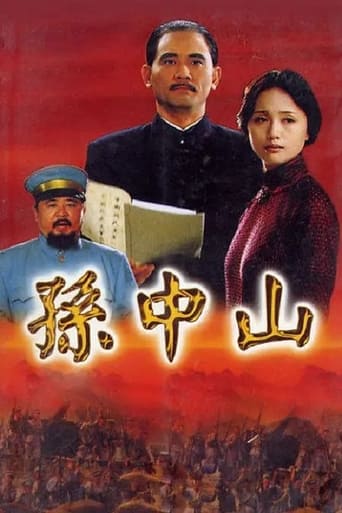



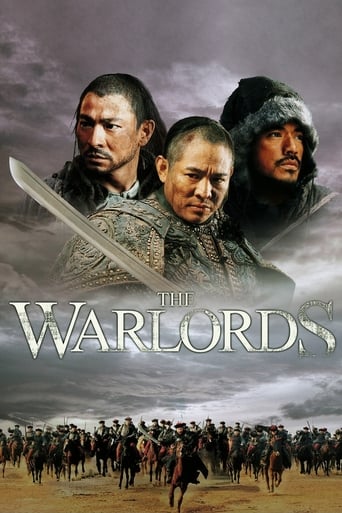






















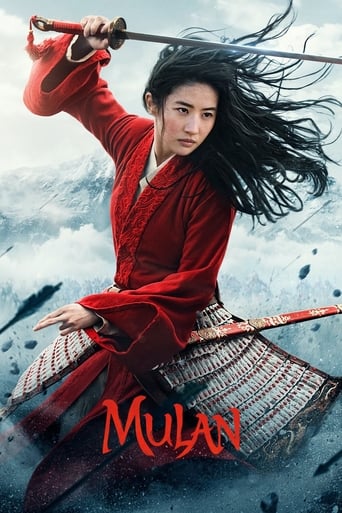





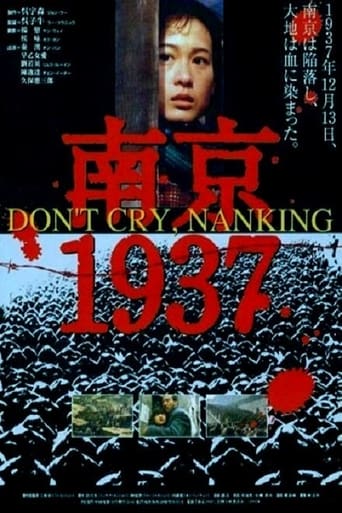






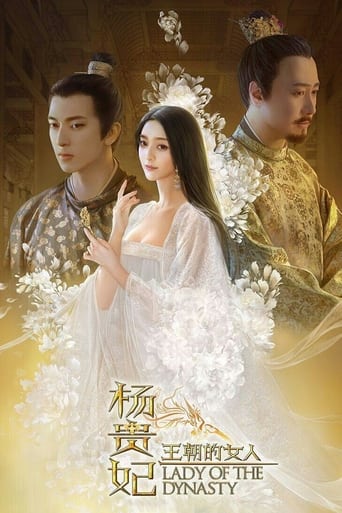
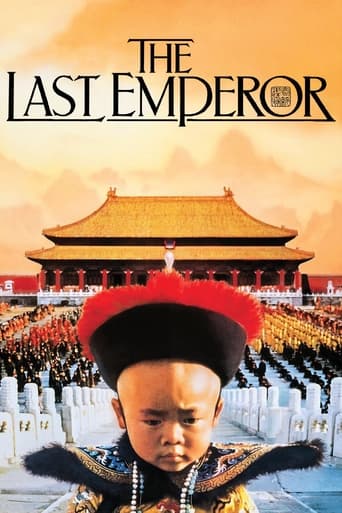


















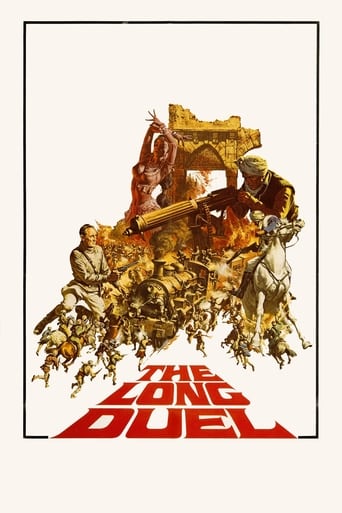















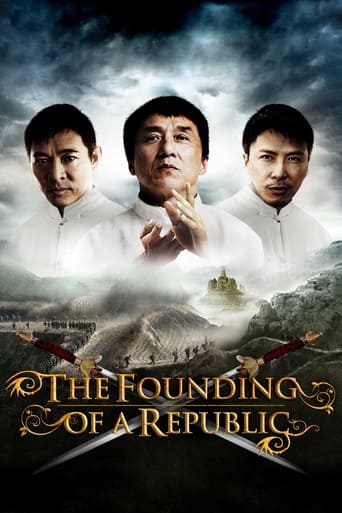






















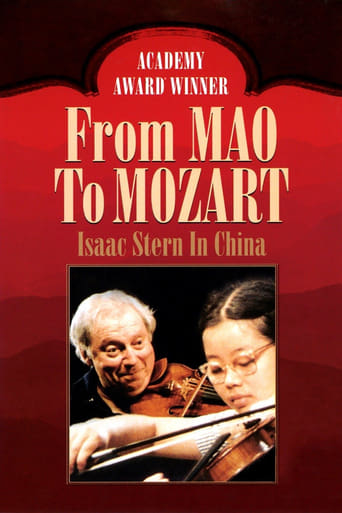
55 Days at Peking
Diplomats, soldiers and other representatives of a dozen nations fend off the siege of the International Compound in Peking during the 1900 Boxer Rebellion. The disparate interests unite for survival despite competing factions, overwhelming odds, delayed relief and tacit support of the Boxers by the Empress of China and her generals.